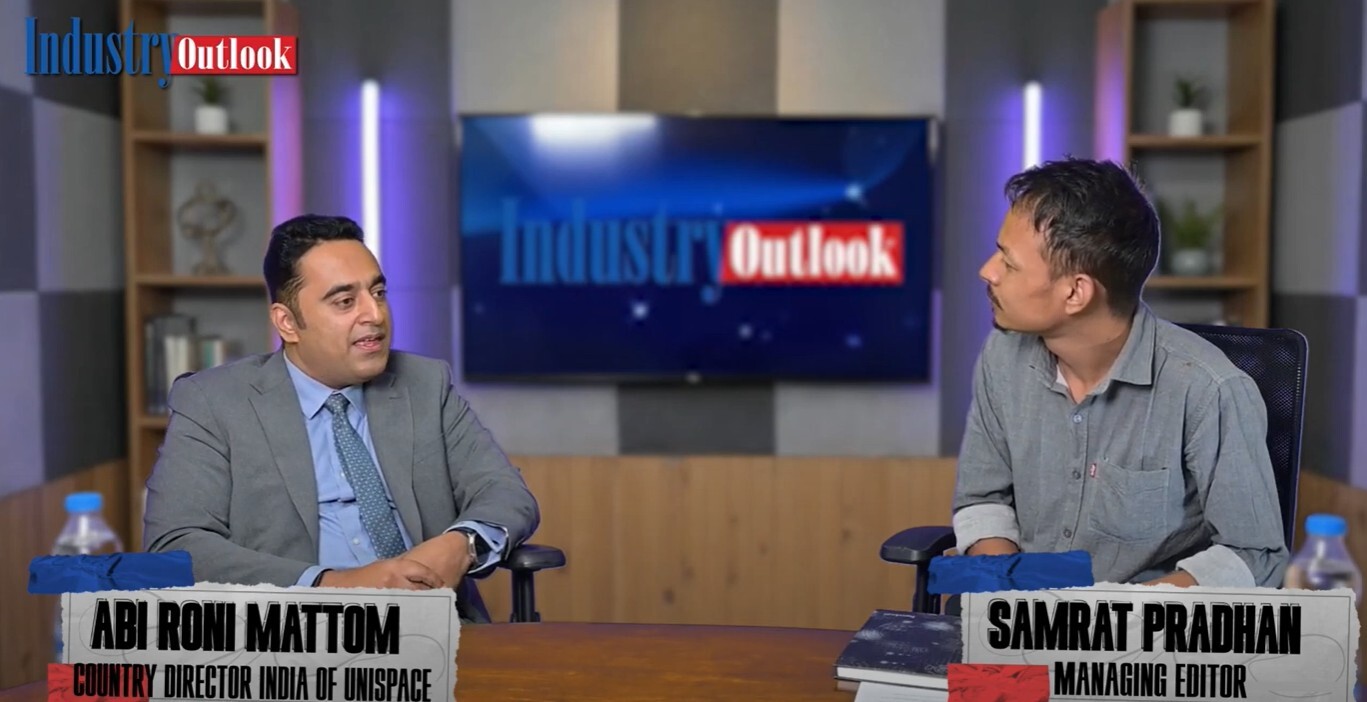From Global Insights to Local Impact: Unispace India’s Vision for the Future of Work | Abi Roni Mattom, Country Director of Unispace India Speaks To Industry Outlook

In a recent conversation with Industry Outlook, Abi Roni Mattom, Country Director of Unispace India, shared valuable insights into how the company is shaping the future of workplace design — combining global expertise, local intelligence, and cutting-edge technology.
Evolving Workplaces in a Fast-Changing World
Workplace design has transformed dramatically over the past two decades. “When I started my career, offices were filled with cubicles,” recalls Mattom. “Fast forward to today, and that concept has disappeared entirely. The younger generation might not even know what a cubicle looks like.”
This shift, he notes, is driven by changing expectations and the coexistence of multiple generations in the workforce. As companies evolve, so does the need for workplaces that foster collaboration, flexibility, and purpose.
 The collaboration space, 'The Heart', of BlackLine Bangalore
The collaboration space, 'The Heart', of BlackLine Bangalore
Global Insights, Local Customization
With a strong presence across continents, Unispace thrives on balancing global best practices with local relevance. “There is no one-size-fits-all solution,” says Mattom. “We deeply study how our clients work, their aspirations, and local nuances before designing any workplace.”
Each Unispace studio — including those in India — operates with autonomy while drawing insights from global expertise. This hybrid approach allows teams to tailor solutions that align with regional market dynamics, work culture, and client goals.
 Takeda Vietnam workplace design that combines global guidelines with local culture
Takeda Vietnam workplace design that combines global guidelines with local culture
Agility and Adaptability: The Indian Advantage
Discussing Unispace’s operations in India, Mattom emphasizes that speed and adaptability are key to success. “In India, everything moves fast. Our clients demand quick turnarounds without compromising quality. Agility, coupled with adaptability, is what defines our approach.”
This mindset, he says, enables the Unispace India team to deliver complex projects efficiently while maintaining international standards.
Technology as a Cornerstone
One of Unispace’s strongest differentiators lies in its technological integration across every stage — from strategy and design to construction.
The company conducts global workplace research, gathering data from thousands of employees across 14 markets. This research informs design principles tailored to each client’s needs.
Unispace also leverages digital twin technology, creating 3D models before construction begins. Tools like Procore and OpenSpace ensure predictive scheduling, transparent communication, and precise project tracking. “These tools allow us to deliver projects at least 30% faster than market standards,” Mattom notes.
 TechSpace of HP Gurgaon, the future of innovation
TechSpace of HP Gurgaon, the future of innovation
Building a Sustainable Future
Sustainability, once an optional consideration, is now a baseline expectation. “Today’s workforce, especially Gen Z, views sustainability as a mandate,” says Mattom.
Unispace ensures that sustainability is built into every project — whether or not clients pursue certifications like LEED or WELL. Their design and procurement teams prioritize green materials and eco-conscious suppliers, reflecting the company’s commitment to environmental responsibility.
 Design using sustainable and green materials for an international technology company
Design using sustainable and green materials for an international technology company
Empowering People and Partners
For Mattom, leadership begins with people. “I see Unispace as a people’s place. When I built the India team, I focused on creating a strong, collaborative family,” he says.
Unispace invests heavily in continuous training for its employees, from leadership to project managers. The company also extends learning programs to its subcontractors and consultants, ensuring consistency in quality and innovation across the value chain.
Looking Ahead: The Future of Workspaces
According to Abi Roni, offices are not disappearing — they are evolving. “We see people becoming more vocal about what they need from their workplaces. They seek comfort, calm, and customization.”
He predicts that while work typologies will change — with more hybrid setups and fewer traditional desks — offices will remain essential for collaboration, trust-building, and innovation.
Unispace continues to stay ahead through its global research initiatives, including the recent global workplace insights report, A Moment of Clarity survey, which captures the evolving expectations of employees worldwide. “We are not just reacting to market trends — we’re anticipating them,” Mattom affirms.

Advice for the Next Generation
Closing with advice to emerging leaders and design professionals, Mattom says:
“It’s no longer about creating a beautiful office. Focus on what the end users need. Let design follow function. Create spaces that help people be the best version of themselves.”

ZEISS Bangkok with shared space, phone booths and dedicated desks to meet employees' different needs - collaboration, privacy and belongings
About Abi Roni Mattom, Country Director, India

Abi Roni Mattom has over 20 years of experience in design, construction, and project management.
Abi joined Unispace in 2020 as Country Director for India to oversee business strategies, client solutions and operations. He is one of the leadership team members in Asia.
Abi has a Bachelor Degree in Civil Engineering from Visvesvaraya Technological University and a Master of Business Administration from Indira Gandhi National Open University. Also, he is a member of the Royal Institute of Chartered Surveyors
Follow Abi Roni Mattom on LinkedIn.


